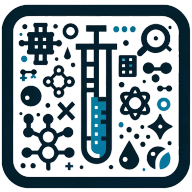7 Ensuring Fairness During the Drug Screening Process
Navigating the complexities of drug screening requires a deft balance of legality and ethics. This article delves into the mechanisms that ensure fairness in the process, enriched by perspectives from seasoned industry professionals. Discover actionable strategies to enhance your organization's drug screening protocols and uphold integrity at every step.
- Ensure Fairness in Drug Screening
- Enhance Fairness with HR Training
- Standardize Testing Protocols
- Provide Clear Screening Information
- Offer Retesting Opportunities
- Utilize Certified Labs
- Establish Formal Appeals Process
Ensure Fairness in Drug Screening
Ensuring Fairness in Drug Screening: A Scientific & Ethical Perspective
During my experience in genetic and diagnostic testing, I have seen cases where individuals were unfairly treated due to false positives in drug screenings. One particular instance involved a professional who tested positive due to a legally prescribed medication, yet was subjected to immediate disciplinary action without a proper medical review. This not only impacted their career but also caused undue stress and stigma.
Employers can ensure fairness in drug screening by implementing scientifically sound and unbiased procedures, including:
Confirmatory Testing: Initial immunoassay screenings should always be followed by GC-MS (Gas Chromatography-Mass Spectrometry) or LC-MS/MS (Liquid Chromatography-Tandem Mass Spectrometry) to rule out false positives.
Medical Review Process: A certified Medical Review Officer (MRO) should evaluate test results and account for legitimate medical prescriptions.
Transparent Policies: Employees should be informed about the types of substances being tested, the process for disputing results, and their rights regarding re-testing.
Addressing Bias: Employers should ensure equal treatment across all demographics, preventing discrimination based on race, gender, or socioeconomic status.
By integrating advanced testing technologies and ethical review standards, organizations can maintain workplace safety while respecting individual rights.

Enhance Fairness with HR Training
It was during a routine pre-employment screening at a mid-sized tech company where the issue of fairness in the drug testing process came starkly into focus. A candidate, who had previously disclosed her use of prescribed medication for a chronic health condition, was abruptly disqualified from consideration due to her medication showing up in the test results. This happened despite assurances that such circumstances would be taken into account. The HR team, overwhelmed by the volume of applicants, had failed to properly review her medical disclosure against the test findings, leading to this oversight. Employers can enhance fairness in their drug screening procedures by implementing a few critical measures. First, training for HR personnel on the nuances of drug testing, including the impact of prescription medications and the importance of privacy and confidentiality, is essential. Employers should also establish a clear policy that outlines the steps to follow when a candidate discloses the use of prescribed drugs, ensuring these are consistently applied across all cases. Additionally, setting up a robust review process that includes a medical review officer can help verify the results and provide a chance to address any discrepancies before making employment decisions. Such practices not only prevent unfair treatment but also bolster the integrity of the company's hiring process.

Standardize Testing Protocols
To ensure fairness during the drug screening process, it is important to standardize testing protocols for all candidates. This means implementing the same procedures, tools, and timelines to achieve consistency. When everyone goes through the same process, it minimizes any potential biases or irregularities.
Standardization helps build trust among candidates and ensures that everyone is treated equally, regardless of their background or other factors. Adopt uniform protocols and enforce them strictly to maintain fairness in drug screenings. By doing this, organizations can foster a fair and transparent process that upholds integrity.
Provide Clear Screening Information
Providing clear information about the drug screening process is crucial for fairness. Informing candidates about each step, including what substances are being tested for and how samples are collected, can help alleviate concerns. Transparency in the process ensures candidates know what to expect and can prepare accordingly.
Clear communication can prevent misunderstandings and promote a sense of trust in the process. To support fairness, it is essential to provide thorough and understandable information to all involved parties. Take the time to educate candidates and clarify any questions they might have about the screening process.
Offer Retesting Opportunities
Offering opportunities for retesting in case of disputes is a key aspect of ensuring fairness in drug screenings. Errors or false positives can sometimes occur, and having a system for retesting addresses such issues. By allowing candidates to appeal and undergo a second test, organizations demonstrate their commitment to accuracy and fairness.
This practice also reassures candidates that they will not be unfairly penalized due to a potential error in the initial test. Implement retesting options to create a more just and unbiased drug screening process, further supporting integrity and trust.
Utilize Certified Labs
Utilizing certified labs for drug screening is fundamental to maintaining accuracy and reducing errors. Certified labs adhere to stringent standards and protocols, ensuring that the testing is reliable. Their expertise and adherence to high-quality processes help minimize the chance of inaccurate results.
This reliability is crucial for candidates to feel confident in the fairness of the screening process. Invest in certified labs to enhance the credibility and dependability of drug tests. Doing so will reinforce the integrity of the screening process.
Establish Formal Appeals Process
Establishing a formal appeals process for contested drug screening results is an important step toward fairness. This process allows candidates to challenge the results and have them reviewed thoroughly. A formal appeals process ensures that every concern is addressed systematically and without bias.
This helps maintain confidence in the overall screening system and shows that fairness is a priority. Implement an appeals process to ensure that all candidates have a fair opportunity to contest their results. Strengthening the appeals process is key to upholding justice and transparency in drug screenings.

